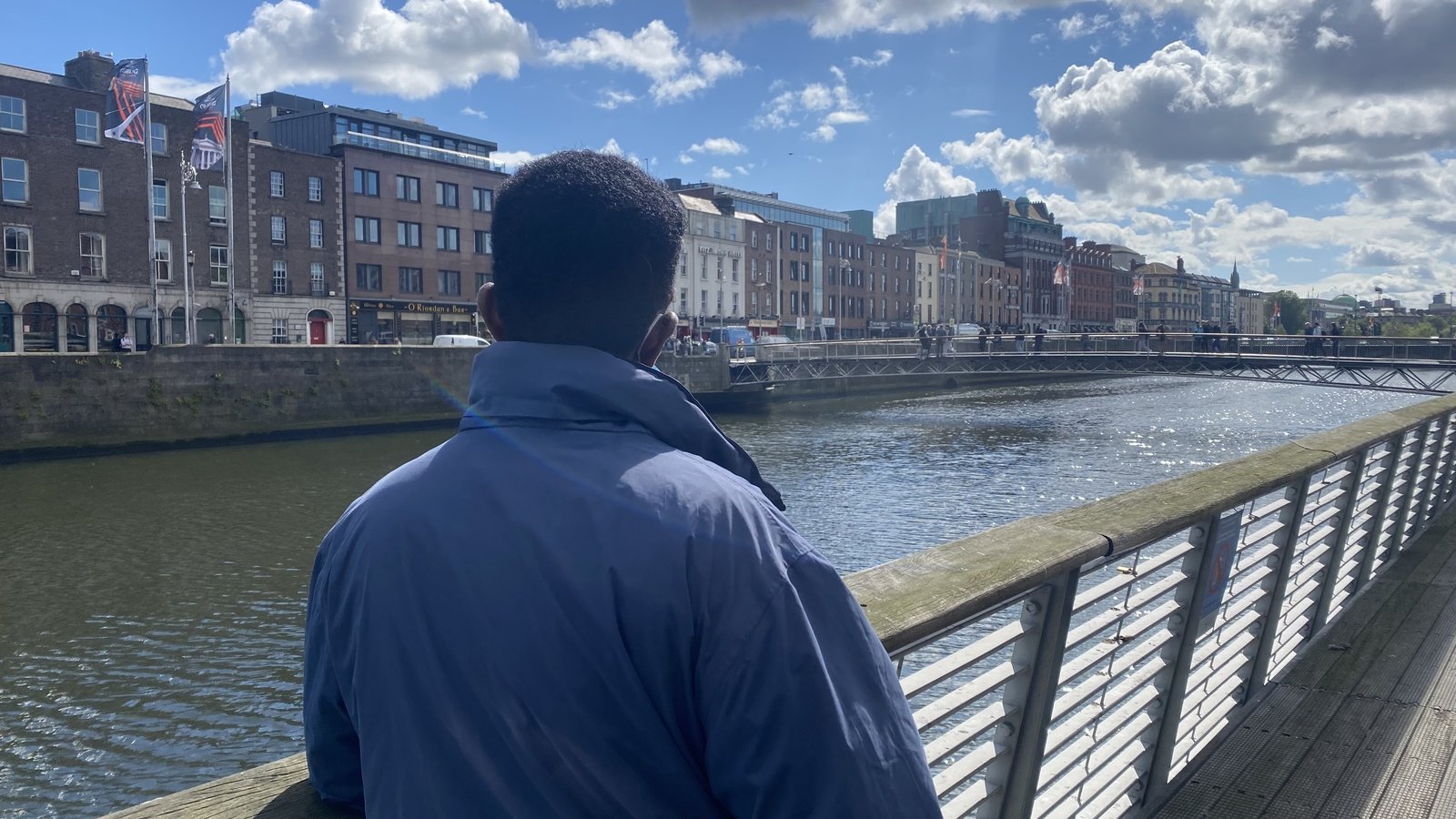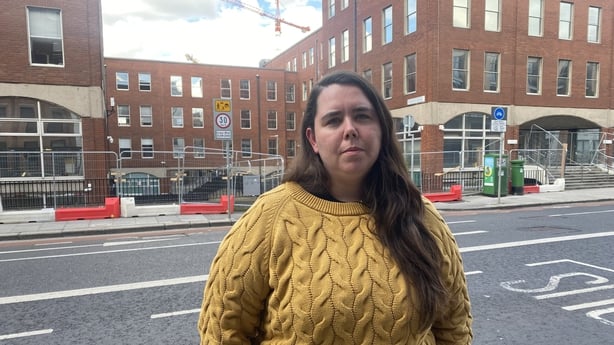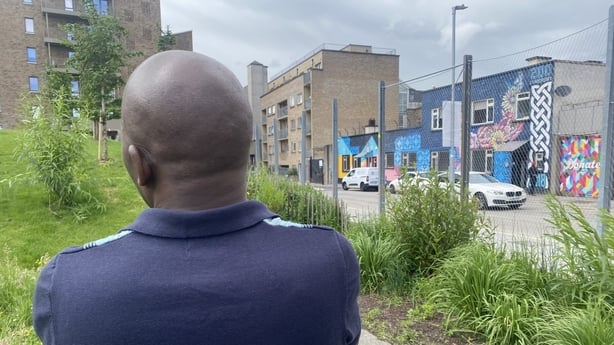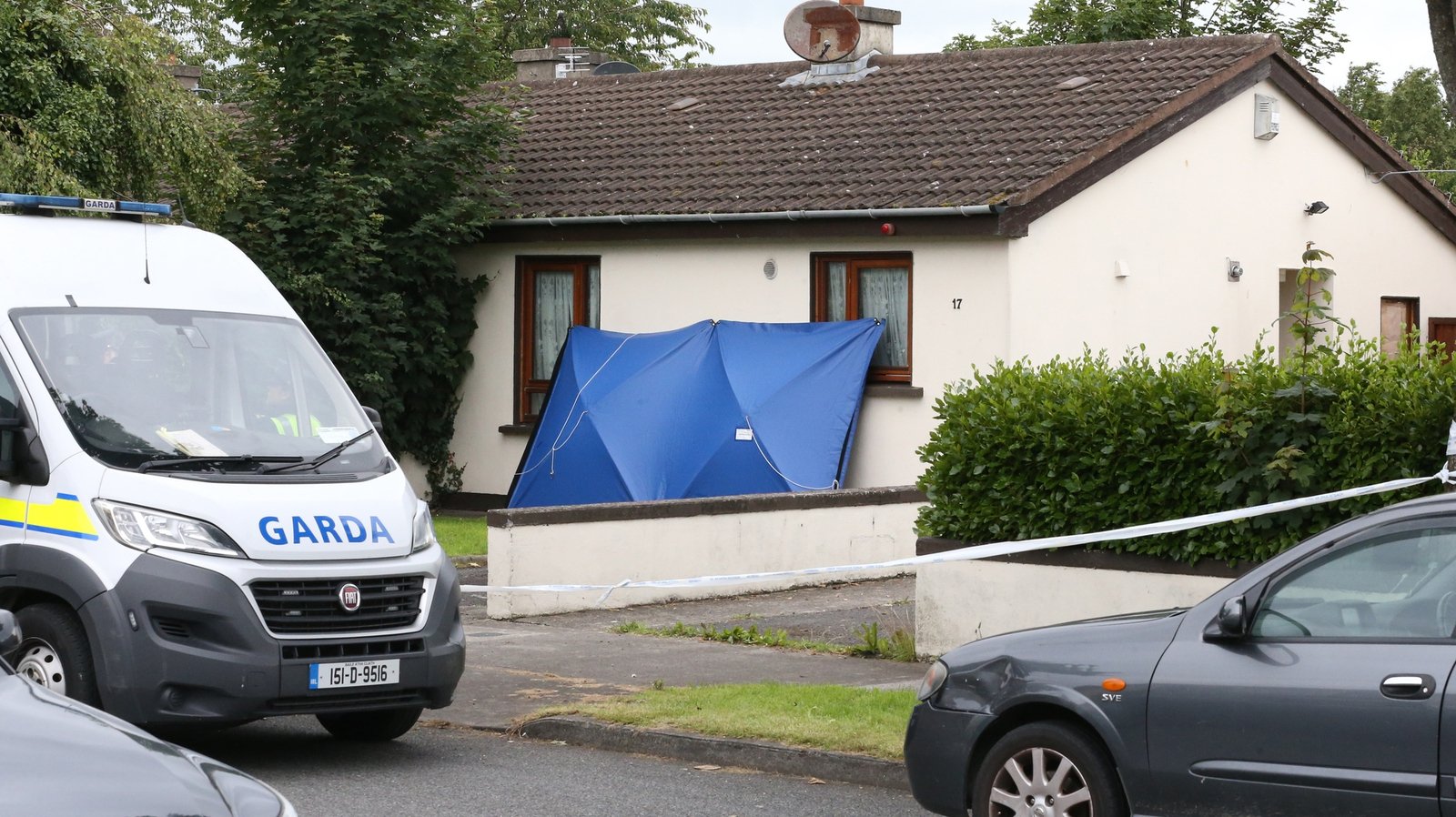Where are Ireland’s 2,000 homeless male asylum seekers?

There are currently between 80 and 100 homeless male asylum seekers living on the Grand Canal, after it was cleared of tents sheltering International Protection applicants twice in the last month.
However, this group represents just a fraction of the almost 2,000 people still awaiting offers of State provided shelter. So where is everyone else?
It’s a question that a group of volunteers supporting unaccommodated asylum seekers have been asking.
“You don’t have anyone taking an overall view of who is in a hostel, who is on a person’s couch, who is sleeping inside a church, who is on the streets and who is in a different city, and that’s what we’re trying to establish at the moment because we think its a massive protection risk not to understand where these people are and who is the most vulnerable,” volunteer Olivia Headon told RTÉ News.
One Somali International Protection applicant, who has been in Ireland since March and is rough sleeping in Dublin city centre, told RTÉ News how he and his friend pitch their tent “after midnight” most nights “around the Charlemount area and the Harcourt area” but in the morning they pack up and leave.
“We hide ourselves in the city,” he explained.
This, he said, was partly about “respecting the image of the city centre” but it was also clear from our conversation that he did not want to attract unwanted negative attention.
“A couple of weeks ago, three young men just attacked me,” he said.
“They try to beat me and they took all my money and I feel very (self) conscious.”
‘Mohamed’ – not his real name – attends a mosque in the city, and on Sunday stayed until it closed before midnight due to the heavy rain that night.
“On some nights they allowed us to stay (overnight) because of the weather,” he added.

‘We are surviving’
He also spoke of a supportive Somali community in Dublin city centre with Somali restaurants and businesses operating there.
“They can offer a cup of tea or traditional Somali meals,” Mohamed said, but added that such support was becoming increasingly stretched because there were now “so many” who were homeless.
Still he dismissed the idea of joining those in tents along the Grand Canal, saying that would be “difficult” for him “because at the Canal there are people from different origins, anything can happen when (you have) the crowding of people, where homeless people come gathering”.
But he did express frustration at hearing that some of those moved on to State accommodation from the Grand Canal in recent weeks were only in Ireland for “eight to ten days”.
“While we are still surviving for more than two months,” he added.
He said that he writes to the International Protection Accommodation Service (IPAS) every day “just updating them on how my life is going on and how we are surviving”, so he believes the details of his case are known by those assigning accommodation when it becomes available.
However it is undeniable that recently offers have come more quickly to those rough sleeping in visible tented encampments than to those who look to keep their head down and remove evidence of their rough sleeping each morning.
“We understand the challenge of hiding ourselves in the city centre,” Mohamed said, but he remained hopeful that his offer of accommodation would come.
In the meantime, while hostels were an option for others who spoke to RTÉ News, Mohamed said they were too expensive for him and most did not accept the only documentation he had.

‘It would be safer for me’
By contrast ‘Timot’ – also a pseudonym – who also arrived in Ireland to seek international protection in March, spent most of his time up to a week-and-a-half ago in hostels, although he told RTÉ News that it had become a financial struggle.
“The allowance that we get (of €113.80 per week for unaccommodated International Protection applicants), I think its only enough for four days, the prices on the weekends actually triple compared to Mondays and Tuesdays,” Timot said.
He also said he had to change hostels a lot in search of affordable rates.
“You find yourself moving from one place to another almost on a daily basis,” Timot said.
Almost a fortnight ago, Timot made a change and moved out of Dublin city to Kildare after finding a more affordable and stable deal online for a B&B in Kildare for €100 per week, but it was time limited.
He described his time there as a “a relief” but said he was “still homeless because he has only been given two weeks… Thursday is my last day and then I am back on the streets”.
Timot was back in Dublin for a short visit to attend appointments when we spoke.
He said he planed to go back to online forums that he has used before to see if he can find “people with good hearts to do me a favour if they can” and take him in, but he acknowledged that was a long shot.
“It’s very rare to find those kind of people,” he said.
In the meantime, Timot will also be watching his email inbox to see if any offer of State accommodation is made to him in the coming days.
“I’m just hoping,” he added.
Priority accommodation list
Most of the State provided accommodation that has been offered to single male asylum seekers recently has been tented accommodation on serviced IPAS sites such as at Crooksling and the former Central Mental Hospital site in Dundrum.
“As long as it is a place that the authorities are offering, I think it would be safer for me,” Timot said.
Since 30 April the vast majority of offers of accommodation have been made to those International Protection applicants who were rough sleeping around Mount Street and on the Grand Canal.
The Department of Integration has said that it has a priority accommodation list, and that “vulnerable International Protection applicants… are then prioritised for accommodation” and to that end it accepts referrals from homeless day services, the Irish Refugee Council and others.
But as to how many people are currently on that list, the department told RTÉ News that it “does not publish data on the priority accommodation list at this time.”
Read more: Liverpool to Dublin – reconstructing the migrant journey




